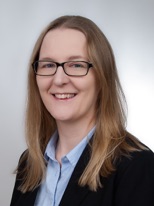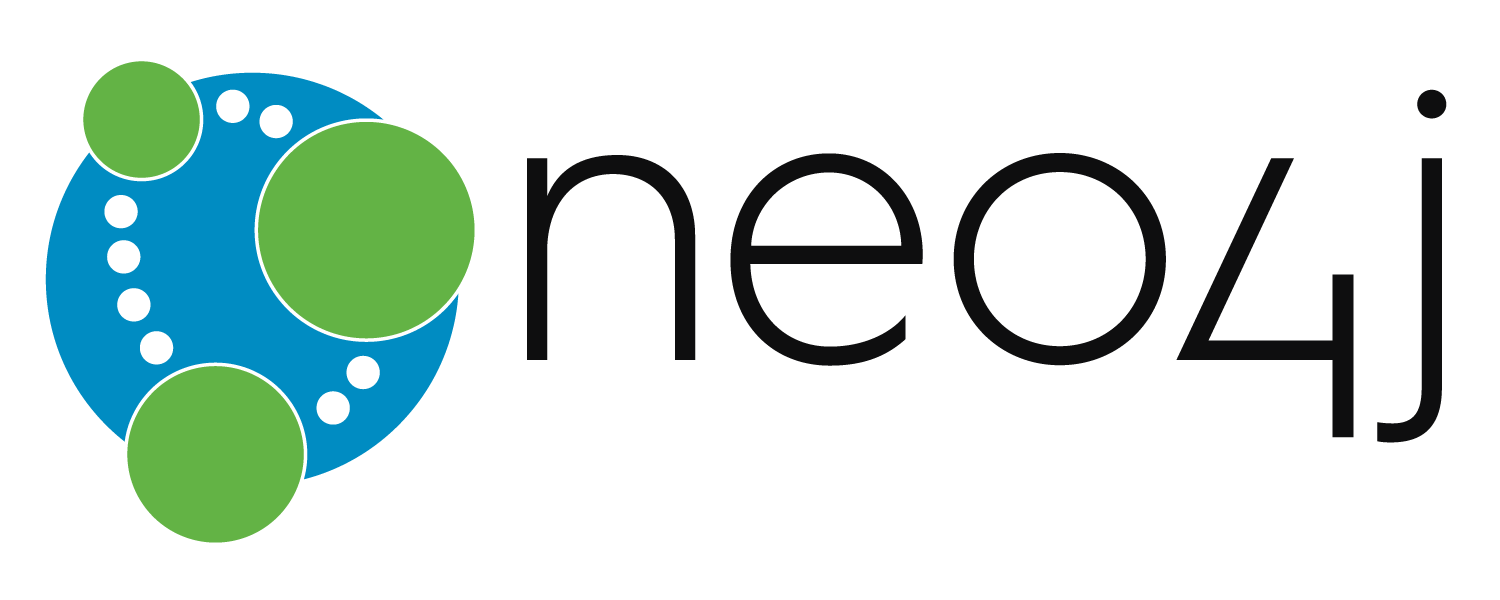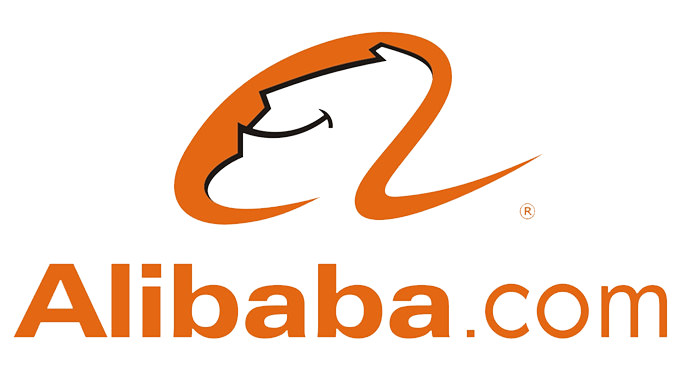The video recording of the workshop is now available here.
The focus of the GRADES-NDA workshop is the application areas, usage scenarios and open challenges in managing large-scale graph-shaped data. The workshop is a forum for exchanging ideas and methods for mining, querying and learning with real-world network data, developing new common understandings of the problems at hand, sharing of data sets and benchmarks where applicable, and leveraging existing knowledge from different disciplines. Additionally, considering specific techniques (e.g., algorithms, data/index structures) in the context of the systems that implement them, GRADES-NDA aims to present technical contributions inside graph, RDF, and other data management systems on graphs of a large size.
Keynote Speakers
We are honored to have the following keynote speakers from different communities (Data Mining/Semantic Web/Databases) to talk about their exciting research in the broad field of graph data management.
- Yizhou Sun UCLA
- Katja Hose Aalborg University
Program
All times are in PDT (Pacific Daylight Time, UTC/GMT -7 hours).
8:10AM-9:00AM Session 1: Graph learning and benchmarking
- Graph Learning with Loss-Guided Training
- The Graph Based Benchmark Suite
- Supporting Dynamic Graphs and Temporal Entity Deletions in the LDBC Social Network Benchmark's Data Generator
9:15AM-10:15AM
Keynote: The Web of Data is partially unavailable, so what? - Katja Hose Abstract: More and more knowledge graphs are becoming available on the
Web, many of them accessible via queryable interfaces, such as
SPARQL endpoints. These knowledge graphs are often linked to
each other and in doing so form the so-called Web of Data. The
great strength and potential of exploiting these links is that we can
obtain answers for queries that would not yield any results over the
knowledge graphs if considered individually. However, one of the
fundamental problems is that Web-accessible knowledge graphs
are not always available when we would like to access them. This
means that the exact same query issued at different points in time
might have different results or, in the worst case, no results if one
of the knowledge graphs that are essential to answer the query
is (temporarily) not available. Often this is caused by crashes of
the server hosting the knowledge graph – a problem that is deeply
rooted within the architecture of the current Web of Data, i.e.,
relying on data providers to keep interfaces and knowledge graphs
available and accessible. Building upon the basics of federated query
processing over knowledge graphs, this talk will discuss challenges
as well as strategies on how to overcome the unavailability problem
and keep the data available and queryable.
Speaker bio: Katja Hose is a Professor in the Department of Computer Science at Aalborg University. Prior to joining Aalborg University, she was a
postdoc at the Max Planck Institute for Informatics in Saarbrücken,
Germany, and earned her PhD in Computer Science from Ilmenau University of Technology, Germany. Her research is rooted
in databases and Semantic Web technologies and spans theory,
algorithms, and applications of Data and Web Science incl. knowledge querying, analyzing, publishing, and extracting. She has co-authored more than 90 peer-reviewed publications (including a few
best paper and best paper runner-up awards). Katja Hose regularly
serves as a reviewer for databases and Semantic Web conferences
and journals (e.g., VLDB, SIGMOD, TheWebConf/WWW, ISWC,TKDE, DAPD). She has served in many different roles as (co-)chair (workshop, senior PC, tutorials, posters, demos, publicity, proceedings) for a broad range of international conferences (e.g., VLDB, SIGMOD, ICDE, TheWebConf/WWW, ISWC).
Abstract: More and more knowledge graphs are becoming available on the
Web, many of them accessible via queryable interfaces, such as
SPARQL endpoints. These knowledge graphs are often linked to
each other and in doing so form the so-called Web of Data. The
great strength and potential of exploiting these links is that we can
obtain answers for queries that would not yield any results over the
knowledge graphs if considered individually. However, one of the
fundamental problems is that Web-accessible knowledge graphs
are not always available when we would like to access them. This
means that the exact same query issued at different points in time
might have different results or, in the worst case, no results if one
of the knowledge graphs that are essential to answer the query
is (temporarily) not available. Often this is caused by crashes of
the server hosting the knowledge graph – a problem that is deeply
rooted within the architecture of the current Web of Data, i.e.,
relying on data providers to keep interfaces and knowledge graphs
available and accessible. Building upon the basics of federated query
processing over knowledge graphs, this talk will discuss challenges
as well as strategies on how to overcome the unavailability problem
and keep the data available and queryable.
Speaker bio: Katja Hose is a Professor in the Department of Computer Science at Aalborg University. Prior to joining Aalborg University, she was a
postdoc at the Max Planck Institute for Informatics in Saarbrücken,
Germany, and earned her PhD in Computer Science from Ilmenau University of Technology, Germany. Her research is rooted
in databases and Semantic Web technologies and spans theory,
algorithms, and applications of Data and Web Science incl. knowledge querying, analyzing, publishing, and extracting. She has co-authored more than 90 peer-reviewed publications (including a few
best paper and best paper runner-up awards). Katja Hose regularly
serves as a reviewer for databases and Semantic Web conferences
and journals (e.g., VLDB, SIGMOD, TheWebConf/WWW, ISWC,TKDE, DAPD). She has served in many different roles as (co-)chair (workshop, senior PC, tutorials, posters, demos, publicity, proceedings) for a broad range of international conferences (e.g., VLDB, SIGMOD, ICDE, TheWebConf/WWW, ISWC).
10:30AM-11:25AM Session 2: Graph analysis and pattern matching
- ELite: Cost-effective Approximation of Exploration-based Graph Analysis
- EdgeFrame: Worst-Case Optimal Joins for Graph-Pattern Matching in Spark
- Towards Interactive Pattern Search in Massive Graphs
11:40AM-12:40PM
Keynote: Graph Neural Networks for Graph Search - Yizhou Sun Abstract: Graph neural networks (GNNs) have received more and more attention in past several years, due to the wide applications of graphs
and networks, and the superiority of their performance compared
to traditional heuristics-driven approaches. However, most existing
GNNs still focus on node-level applications, such as node classification and link prediction, and many challenging graph tasks are
graph-level, such as graph search. In this talk, I will introduce our
recent progress on graph-level neural operator development. In
particular, we will examine three challenging tasks that are key
to the success of graph search: (1) How can we conduct efficient
graph similarity search by turning the NP-Complete problems, such
as the Graph Edit Distance (GED) and Maximum Common Sub-graph (MCS) computation, into a learning problem? We will present
SimGNN and GraphSim that are able to provide more efficient and effective results compared to state-of-the-art approximate
algorithms. (2) How can we provide a neural operator that can turn
any graph into a low dimensional representation vector, which is
learnable, inductive, and unsupervised? In this line, we propose
UGraphEmd that is able to leverage graph-graph interaction
to produce manifold-preserving graph-level embedding. Moreover,
GHashing is designed to map each graph to a discrete hash code,
which enables a much more efficient search (20 times speed up) to
handle large graph database with millions of graphs. And (3) how
can we design GNNs that can directly detect the best matched sub-
graphs of two graphs? A deep reinforcement learning framework
RLMCS is then proposed to address this issue, with the goal
to learn the best strategy to pick the next matching pair for two
graphs. In the end, we will provide some discussions to the open
questions in the field.
Speaker bio: Yizhou Sun is an associate professor at department of computerscience of UCLA. Prior to that, she was an assistant professor in
the College of Computer and Information Science of Northeast-
ern University. She received her Ph.D. in Computer Science from
the University of Illinois at Urbana-Champaign in 2012. Her principal research interest is on mining graphs/networks, and more
generally in data mining, machine learning, and network science,
with a focus on modeling novel problems and proposing scalable
algorithms for large-scale, real-world applications. She is a pioneer
researcher in mining heterogeneous information network, with
a recent focus on deep learning on graphs/networks. Yizhou has
over 100 publications in books, journals, and major conferences.
Tutorials of her research have been given in many premier conferences. She received 2012 ACM SIGKDD Best Student Paper Award,
2013 ACM SIGKDD Doctoral Dissertation Award, 2013 Yahoo ACE
(Academic Career Enhancement) Award, 2015 NSF CAREER Award,
2016 CS@ILLINOIS Distinguished Educator Award, 2018 Amazon
Research Award, and 2019 Okawa Foundation Research Grant.
Abstract: Graph neural networks (GNNs) have received more and more attention in past several years, due to the wide applications of graphs
and networks, and the superiority of their performance compared
to traditional heuristics-driven approaches. However, most existing
GNNs still focus on node-level applications, such as node classification and link prediction, and many challenging graph tasks are
graph-level, such as graph search. In this talk, I will introduce our
recent progress on graph-level neural operator development. In
particular, we will examine three challenging tasks that are key
to the success of graph search: (1) How can we conduct efficient
graph similarity search by turning the NP-Complete problems, such
as the Graph Edit Distance (GED) and Maximum Common Sub-graph (MCS) computation, into a learning problem? We will present
SimGNN and GraphSim that are able to provide more efficient and effective results compared to state-of-the-art approximate
algorithms. (2) How can we provide a neural operator that can turn
any graph into a low dimensional representation vector, which is
learnable, inductive, and unsupervised? In this line, we propose
UGraphEmd that is able to leverage graph-graph interaction
to produce manifold-preserving graph-level embedding. Moreover,
GHashing is designed to map each graph to a discrete hash code,
which enables a much more efficient search (20 times speed up) to
handle large graph database with millions of graphs. And (3) how
can we design GNNs that can directly detect the best matched sub-
graphs of two graphs? A deep reinforcement learning framework
RLMCS is then proposed to address this issue, with the goal
to learn the best strategy to pick the next matching pair for two
graphs. In the end, we will provide some discussions to the open
questions in the field.
Speaker bio: Yizhou Sun is an associate professor at department of computerscience of UCLA. Prior to that, she was an assistant professor in
the College of Computer and Information Science of Northeast-
ern University. She received her Ph.D. in Computer Science from
the University of Illinois at Urbana-Champaign in 2012. Her principal research interest is on mining graphs/networks, and more
generally in data mining, machine learning, and network science,
with a focus on modeling novel problems and proposing scalable
algorithms for large-scale, real-world applications. She is a pioneer
researcher in mining heterogeneous information network, with
a recent focus on deep learning on graphs/networks. Yizhou has
over 100 publications in books, journals, and major conferences.
Tutorials of her research have been given in many premier conferences. She received 2012 ACM SIGKDD Best Student Paper Award,
2013 ACM SIGKDD Doctoral Dissertation Award, 2013 Yahoo ACE
(Academic Career Enhancement) Award, 2015 NSF CAREER Award,
2016 CS@ILLINOIS Distinguished Educator Award, 2018 Amazon
Research Award, and 2019 Okawa Foundation Research Grant.
1:35PM-2:30PM Session 3: Potpourri
- Smooth Kronecker: Solving the Combing Problem in Kronecker Graphs
- Context-Free Path Querying with Single-Path Semantics by Matrix Multiplication
- A Framework for DSL-Based Query Classification Using Relational and Graph-Based Data Models
2:45PM-3:45PM Industrial talks
- Working with property graphs using SAP HANA
- Graph Data Science with Neo4j
- IBM Db2 Graph: Synergistic and Retrofittable Graph Queries inside IBM Db2
- Modern Aggregation Support in TigerGraph
- Graph Applications and Systems in Alibaba
4:00PM-5:00PM Free-roam posters and demos
Demos:
- Addressing graph worflows using SAP HANA
- Hands on: using Neo4j's Graph Data Science Library
- Supporting Synergistic and Retrofittable Graph Queries using IBM Db2 Graph
- Why You Should Train Large Graph Convolutional Network (GCN) In A Graph Database - a GCN demo in TigerGraph
- The Graph Based Benchmark Suite
- A Framework for DSL-Based Query Classification Using Relational and Graph-Based Data Models
Posters:
- Graph Learning with Loss-Guided Training
- Supporting Dynamic Graphs and Temporal Entity Deletions in the LDBC Social Network Benchmark's Data Generator
- ELite: Cost-effective Approximation of Exploration-based Graph Analysis
- EdgeFrame: Worst-Case Optimal Joins for Graph-Pattern Matching in Spark
- Towards Interactive Pattern Search in Massive Graphs
- Smooth Kronecker: Solving the Combing Problem in Kronecker Graphs
- Context-Free Path Querying with Single-Path Semantics by Matrix Multiplication
Call for Papers
The goal of GRADES-NDA is to bring together researchers from academia, industry, and government, (1) to create a forum for discussing recent advances in (large-scale) graph data management and analytics systems, as well as propose and discuss novel methods and techniques towards (2) addressing domain specific challenges or (3) handling noise in real-world graphs.
The workshop will be of interest to researchers in the development of novel data-management applications and systems for large-scale graph analytics. More specifically, the intended audience are, but not limited to, academic and industrial computer scientists interested in databases and data mining, machine learning, data streaming, graph theory and algorithms. Along with novel research work, we encourage submissions with demonstrations and case studies from real-life experiences in various domains such as Social Networks, Biological Network Data, Marketing and Media, Business Data Analysis, Healthcare Data, Cybersecurity etc.
Topics of interest include but are not limited to the following.
- Graph query languages, visualization techniques and querying interfaces, and their effective realization
- Graph platform and parallel platforms, e.g., Flink/Gelly, Titan, SPARK/GraphX, GraphLab/PowerGraph, Giraph, GraphChi etc.
- Network data representation, storage, indexing and querying methods.
- Experiences or techniques for graph specific operations such as traversals or inference/reasoning in the context of large data sets and on the systems that implement those operations.
- RDF data management and analytics
- Dynamic Graphs: managing graph updates; graph stream analytics; analyzing evolution and detection of community structures in real-world evolving graphs
- Mining and machine learning on heterogeneous networks -- knowledge graphs etc.
- Graph summarization and sampling
- Game Theory, Social contagion and Information propagation on networks
- Analytics on dirty, noisy, or uncertain graphs
- Spatial and temporal graph analytics
- Analytics on social, biological, retail, marketing, customer care, financial, healthcare, transportation network data sets
- Descriptions of graph data management use cases and query workloads, and experiences with applying data management technologies in such situations
- Vision and systems papers describing potential or real applications and benefits of graph management
Accepted papers will be published by ACM, indexed by DBLP, and would be available in the ACM DL.
Important Dates
- Paper Submission:
March 23April 6, 2020 - Notifications:
April 13April 27, 2020 - Camera Ready Submission:
April 27May 11, 2020 - Workshop Date: June 14, 2020
Workshop Organizers
- Akhil Arora, EPFL
- Semih Salihoglu, University of Waterloo
- Nikolay Yakovets, TU Eindhoven
Steering Committee
- Arnab Bhattacharya, IIT Kanpur
- Tina Eliassi-Rad, Northeastern University
- George Fletcher, TU Eindhoven
Paper Submission
Authors are invited to submit original, unpublished research papers (full and short), demonstrations and case-studies.
Submissions must follow the latest 2-column ACM Master article "sigconf" proceedings LaTeX template with 10pt font size, and should be double-blind. Details on the Anonymity requirements for submitted manuscripts are present at the SIGMOD 2020 Call for Papers page.
Length Requirements:
- Full papers should be a maximum of 8 pages in length, excluding references and appendix.
- Case studies should be a maximum of 4 pages in length, excluding references and appendix.
- Short papers and demonstration papers should be a maximum of 4 pages in length, excluding references and appendix.
Submissions will be handled through Easychair. To submit click here.
Program Committee
- Renzo Angles, Universidad de Talca
- Marcelo Arenas, PUC Chile
- Alex Averbuch, Neo4j
- Amitabha Bagchi, Indian Institute of Technology, Delhi
- Srikanta Bedathur, Indian Institute of Technology, Delhi
- Peter Boncz, CWI
- Yang Cao, The University of Edinburgh
- Edith Cohen, Google Research
- Mahashweta Das, Visa Research
- Sourav Dutta, Bell Labs, Ireland
- Irini Fundulaki, ICS-Forth
- Sainyam Galhotra, UMass Amherst
- Alberto Garcia-Duran, EPFL
- Kiran Garimella, MIT
- Ricard Gavaldà , UPC Barcelona
- Joan Guisado-Gámez, UPC Barcelona
- Jiawei Han, University of Illinois Urbana-Champaign
- Russ Harmer, CNRS & ENS Lyon
- Jan Hidders, VU Brussels
- Vasiliki Kalavri, Boston University
- Panos Kalnis, King Abdullah University of Science and Technology
- Josep Lluís Larriba-Pey, UPC Barcelona
- Essam Mansour, Concordia University
- Marcus Paradies, DLR
- Arnau Prat-Pérez, Sparsity
- Maya Ramanath, Indian Institute of Technology, Delhi
- Sayan Ranu, Indian Institute of Technology, Delhi
- Erdem Sariyuce, University at Buffalo
- Juan Sequeda, Capsenta Labs
- Julian Shun, MIT
- Yogesh Simmhan, Indian Institute of Science, Bangalore
- Andreas Spitz, Ecole Polytechnique Fédérale de Lausanne
- Gábor Szárnyas, Budapest University of Technology and Economics
- Martin Theobald, University of Luxembourg
- Enara Vijil, IBM
- Hannes Voigt, Neo4j
- Tianxing Wu, Nanyang Technological University
- Yinghui Wu, Washington State University
- Yinglong Xia, Facebook Research
- Oskar van Rest, Oracle
Past Workshops
GRADES-NDA is in its third edition, and had successful joint meetings collocated with SIGMOD/PODS 2018 and 2019 respectively. Specifically, it is the merger of the GRADES and NDA workshops, which were each independently organized and successfully held at previous SIGMOD-PODS meetings, GRADES since 2013 and NDA since 2016. The organizers of GRADES and NDA mutually agreed upon to aim for a joint meeting from 2018 onwards.






